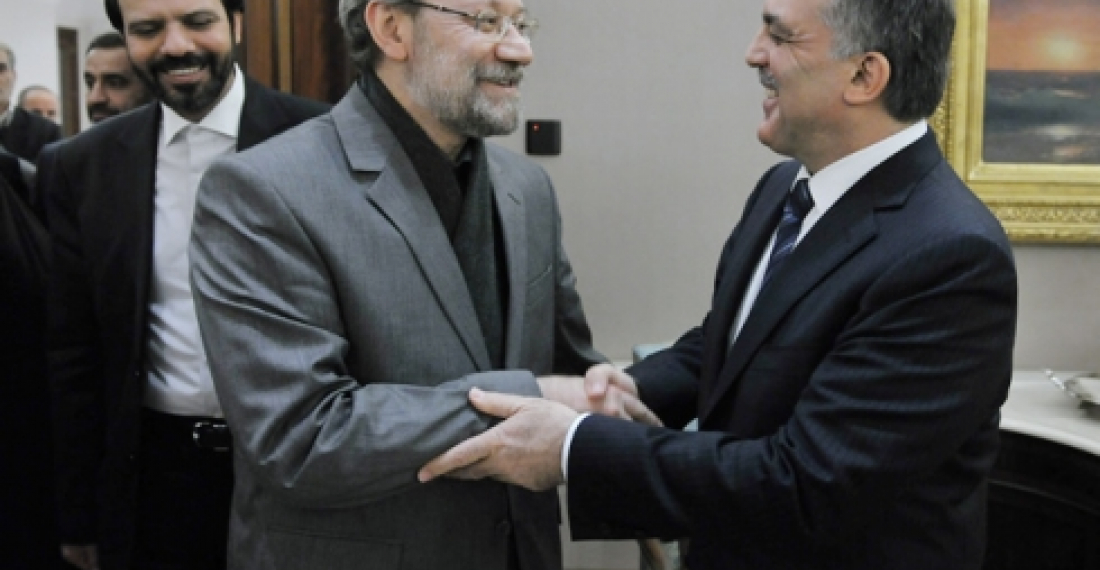Iranian Parliament Speaker Ali Larijani met Turkish President Abdullah Gul in Ankara yesterday. The meeting took place behind closed doors. Turkey said it will not comply with new U.S. sanctions against Iran, despite Washington campaigning for further sanctions against Tehran over its nuclear program.
Turkey has distanced itself from current efforts to increase further sanctions against Iran. "Turkey does not feel it is bound by any sanctions taken unilaterally or as a group, other than those imposed by Chapter Seven of United Nations Charter," Turkish Foreign Ministry spokesman Selcuk Unal told a news conference. "We favor a settlement to the nuclear dispute through diplomatic means," said Unal.
The United States has ratcheted up pressure on Tehran with a new round of sanctions aiming to halt what Western governments say is Iran's efforts to develop nuclear weapons. The sanctions target oil industry of Iran in an attempt to bar financial institutions from the U.S. market from doing business with Iran's central bank.
Turkish Petroleum Refineries Corporation (Tupras), the biggest crude oil importer of the country, purchases a great amount of oil from Iran. "Tupras is continuing its imports and as of today there has been no change on our roadmap," Turkey's Energy Minister Taner Yildiz said Thursday.
Turkish Media also reported that Turkish officials have reassured Iran about the intentions of the US missile shield that Turkey has agreed to host.
During his visit to Turkey the Iranian Parliamentary Speaker also met with Turkish Prime Minister Recip Tayip Erdogan
Oil rises amid supply fears
Oil prices rose above $102 a barrel yesterday, following concerns that a strike in Nigeria and heightened tension in Iran could threaten global oil supplies. Benchmark crude for February delivery rose $1.27 to $102.14 a barrel by early afternoon in Europe in electronic trading on the New York Mercantile Exchange. The contract fell by $1.37 to settle at $100.87 in New York on Jan. 11.
source: commonspace.eu with IRNA, Turkish Daily News and Xinhua
photo:: Turkish President Abdulla Gul welcoming the Iranian Parliamentary Speaker in Ankara on 12 January 2012 (picture courtesy of the Press Service of the President of Turkey







